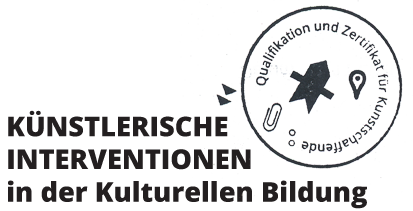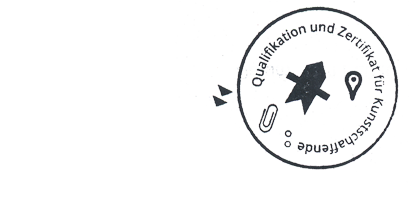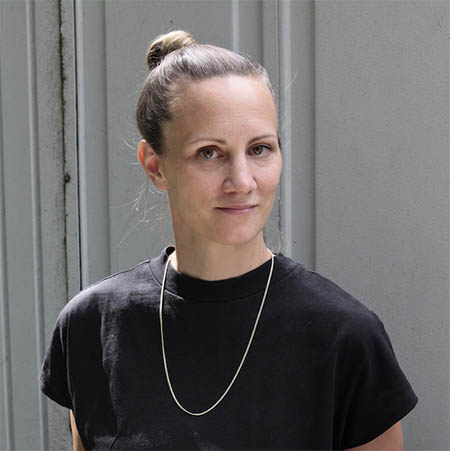



Since 2011/2012, Alexandra Kersten has been working as a teacher at Heinz-Brandt-Schule Berlin-Weißensee, which is an integrated secondary school. She had previously taught at a “Hauptschule” (a type of primary school) in Berlin-Neukölln. She studied art, German and education science at “Christian-Albrechts-Universität zu Kiel” (Kiel University) and “Europa-Universität Flensburg”, and holds a qualification to teach both ethics and performing arts at a university.
She is presently form mistress of a 9th form class, cultural commissioner in the context of the Berlin City State programme “Kulturagenten Kreative Schulen” (cultural agents creative schools) and, above all, head of department for cultural education at Heinz-Brandt-Schule, and thus at the interface between school development and collaborative schemes with creators of art and culture.
What is your professional focus?
In addition to teaching, my professional focus is the working out and developing of scenarios for lessons and school structures which promote, enable and support Cultural Education. In addition to good networking and collaborative schemes, this requires formats with well-trained external staff in multi-professional teams which can be experienced anew again and again.
So in my opinion, the catchwords of the “4K Model”, “Kommunikation (communication), “Kollaboration” (collaboration), “Kreativität” (creativeness) and “Kritisches Denken” (critical thought) happen to be those which schools now have to intensively address. I hold the notion that school does not need short-term projects but lasting free scope to act in where pupils can research topics and issues. Space and time, individual support and common, inquisitive learning are what is called for.
What potentials do you see in the certificate course “Artistic Interventions in Cultural Education” for your specialist field?
Schools need settings allowing pupils to discover topics individually, train cross-cutting skills and regard themselves as well as their own learning and creative action as significant.
Promoting creativeness at least calls for relatively free spaces to move in which offer scope for novelties and are free from concepts of order. So options have to be provided allowing pupils to be creative while imparting them with knowledge and skills they need to be able to put this creativeness into practice. It is important to understand “diversions” in artistic practice as “a better knowledge of one’s whereabouts”. It is at this interface where I see the certificate course – as a link above all addressing artists and becoming effective in schools.
Which changes are needed at cultural policy or education policy level to strengthen the potentials of cooperation with artists for Cultural Education in Germany?
More freedom, more autonomy for schools and more trust on the part of society as a whole is needed in all areas. Schools ought to be given the opportunity to freely recruit multi-professional teams, guided by their own profile. Here, it is important not only to strengthen the “classic” creative subjects, but also to consider the options which Cultural Education offers in other “subjects”.
Schools need time and good staff to enter, try out, adapt, evaluate and newly locate collaborative schemes. At the same time, they must have money to fund such ventures and to simultaneously attract external creators of art and culture. Time as well as funding structures have to be conceived as more open, simpler and more easily accessible to all.
The bottom line is time, money and engagement for one’s own action.
Alexandra Kersten at “Artistic Interventions in Cultural Education”
Alexandra Kersten is taking part in the course framework as a lecturer in Module 4: “Cultural Education in school contexts”. If you have any queries or are interested in cooperating, you are welcome to contact zertifikatskurs [at] uni-hildesheim [dot] de.